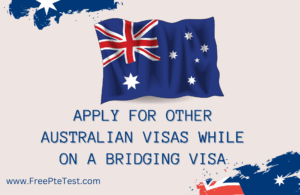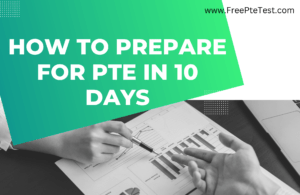Homeownership is a significant milestone that brings joy, comfort, and a sense of security. So, it is important to find best home insurance in Australia. However, unforeseen events such as natural disasters, accidents, or theft can disrupt the tranquility of your home.
That’s where home insurance becomes crucial, providing a financial safety net to help you recover from unexpected setbacks. In Australia, a plethora of home insurance options are available, making it essential to choose the best coverage tailored to your needs. There are number of benefits that Immigrants in Australia can get.
In this comprehensive guide, we’ll explore the key factors to consider and highlight some of the best home insurance options in Australia.
Understanding Home Insurance:
Home insurance, also known as homeowners insurance, is a financial product that provides coverage for losses and damages to an individual’s residence. It typically includes coverage for the physical structure of the home, personal belongings, and liability protection in case someone is injured on the property.
In Australia, home insurance policies are designed to address the unique challenges posed by the country’s diverse climate and geographical conditions.
Key Factors to Consider:
Coverage Options:
- Structure Coverage: Protects the physical structure of your home against perils such as fire, storms, and natural disasters.
- Contents Coverage: Covers personal belongings inside the home, including furniture, electronics, and valuables.
- Liability Coverage: Provides protection if someone is injured on your property, covering legal expenses and medical bills.
Policy Exclusions:
- Carefully review policy exclusions to understand what is not covered. Common exclusions may include pre-existing damages, intentional acts, and certain types of natural disasters.
Claims Process:
- Look for insurers with a reputation for prompt and fair claims settlement.
Premiums and Deductibles:
- Compare premiums from different insurers, keeping in mind that the cheapest option may not always provide adequate coverage. Also, consider the deductible amount you’re comfortable paying in the event of a claim.
Customer Service:
- A responsive and helpful customer service team is crucial, especially when you need assistance during emergencies or when filing a claim.
Additional Coverages:
- Some insurers offer add-on coverages for specific needs, such as flood insurance, accidental damage, or coverage for high-value items.
Conclusion:
Choosing the best home insurance in Australia involves a careful assessment of your specific needs, budget, and preferences. By considering factors such as coverage options, policy exclusions, claims processes, premiums, customer service, and additional coverages, you can make an informed decision to protect your most valuable asset—your home.
Remember that ongoing review and adjustment of your policy are essential as your circumstances change. Stay informed, secure your haven, and enjoy the peace of mind that comes with knowing your home is protected.
FAQs on Best Home Insurance in Australia:
Q1: Who needs home insurance in Australia?
Homeowners, renters, and anyone with a mortgage on their property should strongly consider getting home insurance. It protects your financial stability in case of unexpected events like fire, theft, or natural disasters.
Q2: What types of home insurance are available in Australia?
There are two main types: building and contents insurance. Building insurance covers the structure of your home, while contents insurance covers your belongings inside. You can also purchase combined policies that cover both building and contents.
Q3: How much does home insurance cost in Australia?
The cost varies depending on factors like your property’s value, location, level of coverage, and chosen excess.
Q4: What events are typically covered by home insurance?
Most policies cover common events like fire, storms, theft, vandalism, and water damage. Some policies also cover additional events like earthquakes, floods, and accidental damage.
Q5: What is not covered by most home insurance policies?
Typical exclusions include wear and tear, damage caused by pests or vermin, faulty workmanship, and intentional damage. Check the policy wording for a full list of exclusions.
Q6: What is excess, and how does it affect my coverage?
Excess is the amount you pay towards a claim before the insurance company starts paying. A higher excess usually means a lower premium. Choose an excess amount that you’re comfortable paying if you need to make a claim.
Q7: How do I make a claim on my home insurance?
Contact your insurer as soon as possible after an event occurs. Follow their instructions and provide all the required documentation. Be honest and accurate in your claim application.
Q8: How long does it take to receive a payout after making a claim?
The processing time depends on the complexity of your claim and the insurer’s assessment.
Q9: What can I do to ensure my claim is processed smoothly?
Document the event with photos and videos, keep all receipts for repairs and replacements, and cooperate with your insurer throughout the process.
Q10: What factors should I consider when choosing a home insurance provider?
Compare factors like coverage options, premiums, excess levels, claims reputation, customer service reviews, and the financial stability of the insurer.
Q11: Should I use a comparison website to get quotes?
Comparison websites can be a helpful tool to compare prices and features from different providers. However, be sure to research each provider individually and read the policy wording carefully before making a decision.
Q12: Can I get a discount on my home insurance?
Many insurers offer discounts for things like installing security alarms, having a good claims history, and bundling your home insurance with other policies like car insurance.
Q13: Do I need to disclose any pre-existing conditions to my insurer?
Yes, you must disclose any pre-existing conditions that could affect your risk of making a claim.
Q14: What happens if my home is damaged and I need to find temporary accommodation?
Some policies offer temporary accommodation coverage if your home is uninhabitable due to a covered event. Check your policy wording for details.
Q15: What if I have questions or need help understanding my policy?
Contact your insurance provider’s customer service team. They will be able to answer your questions and help you understand your coverage.



